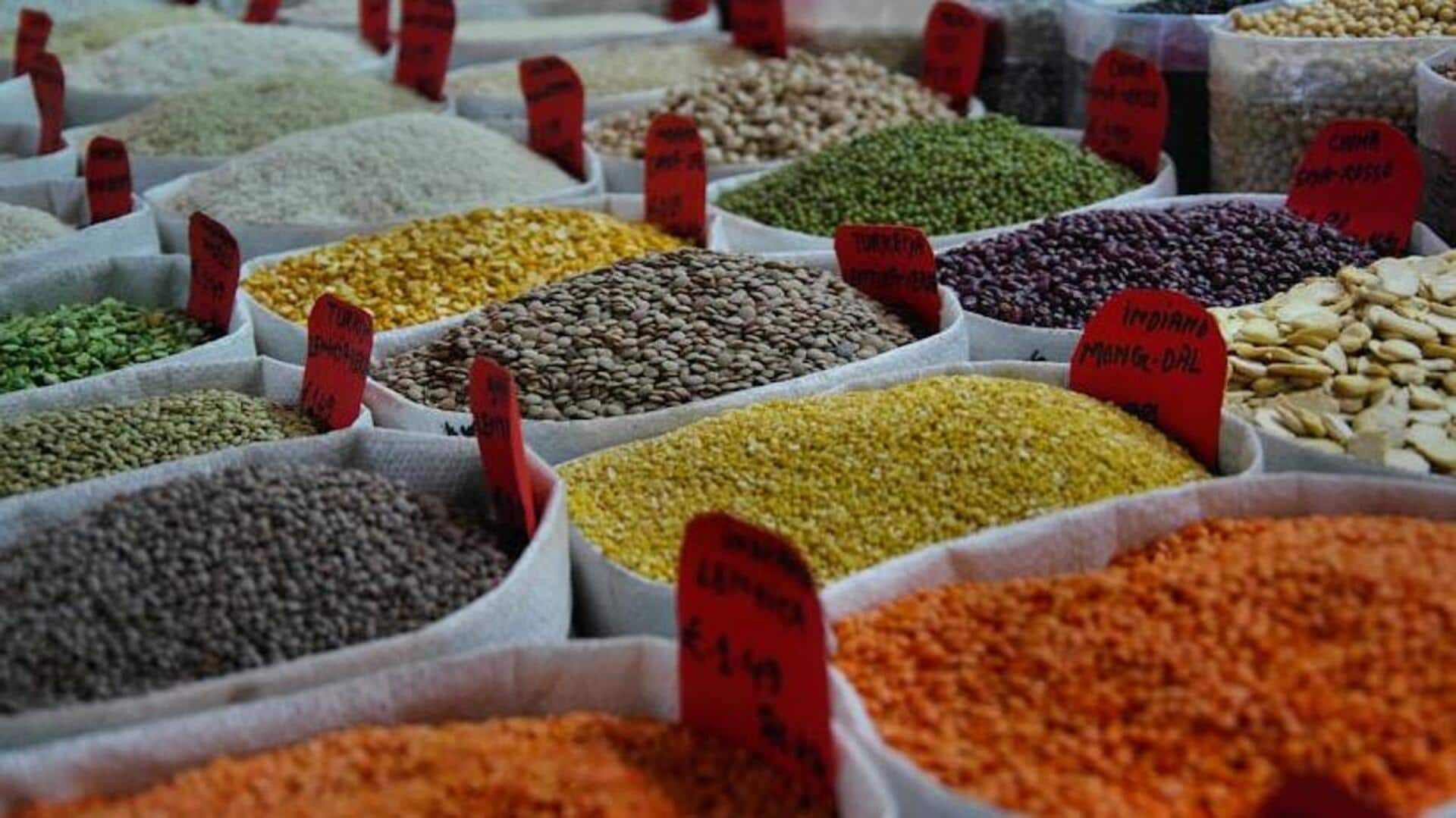
Vegetarian pantry 101: Essential grains to get you started
What's the story
A well-rounded vegetarian pantry is incomplete without a variety of grains. These grains provide essential nutrients, fiber, and energy needed for a balanced diet. They can be used in numerous dishes, from breakfast to dinner, as versatile ingredients. If you stock up on these grains, you'll have the foundation for nutritious meals at your fingertips. Here are some must-have grains that should be part of every vegetarian pantry.
Protein source
Quinoa: A protein powerhouse
Quinoa is often hailed as a complete protein source, thanks to it containing all nine essential amino acids. This makes it an excellent choice for vegetarians seeking to meet their protein needs without resorting to animal products. It's also rich in fiber, magnesium, and iron contributing to your overall health. Quinoa can be used in salads, soups, or as a side dish.
Fiber boost
Brown rice: A fiber-rich staple
Brown rice, which has its bran layer and germ intact, is also richer in fiber than white rice. This whole grain promotes gut health and keeps you energized all day long. Brown rice is also rich in manganese and selenium. It goes well with vegetables or can be used as a base for stir-fries.
Heart health
Oats: Heart-healthy breakfast option
We all know that oats are good for the heart because they are rich in beta-glucan, which lowers cholesterol levels. However, oats are also packed with antioxidants and vitamins, such as B1 and B5. Whether you prepare them as oatmeal or toss them into smoothies for an additional nutritional boost, oats make for an excellent breakfast choice.
Gluten-free choice
Millet: Gluten-free versatility
Millet is naturally gluten-free and works as a versatile cooking grain just like rice or quinoa. It is packed with nutrients like magnesium, phosphorus, and copper, and is easy on the stomach because of its alkaline nature. Millet can be cooked into a porridge or used as an alternate grain base for several recipes.
Nutrient density
Barley: Nutrient-dense grain
Barley is particularly impressive for its high nutrient density; it has vitamins B1 and B3 as well as minerals such as selenium and zinc that aid in immune function, etc. These include reducing inflammation markers in the body systemically over time when consumed regularly enough with balanced diets overall too!